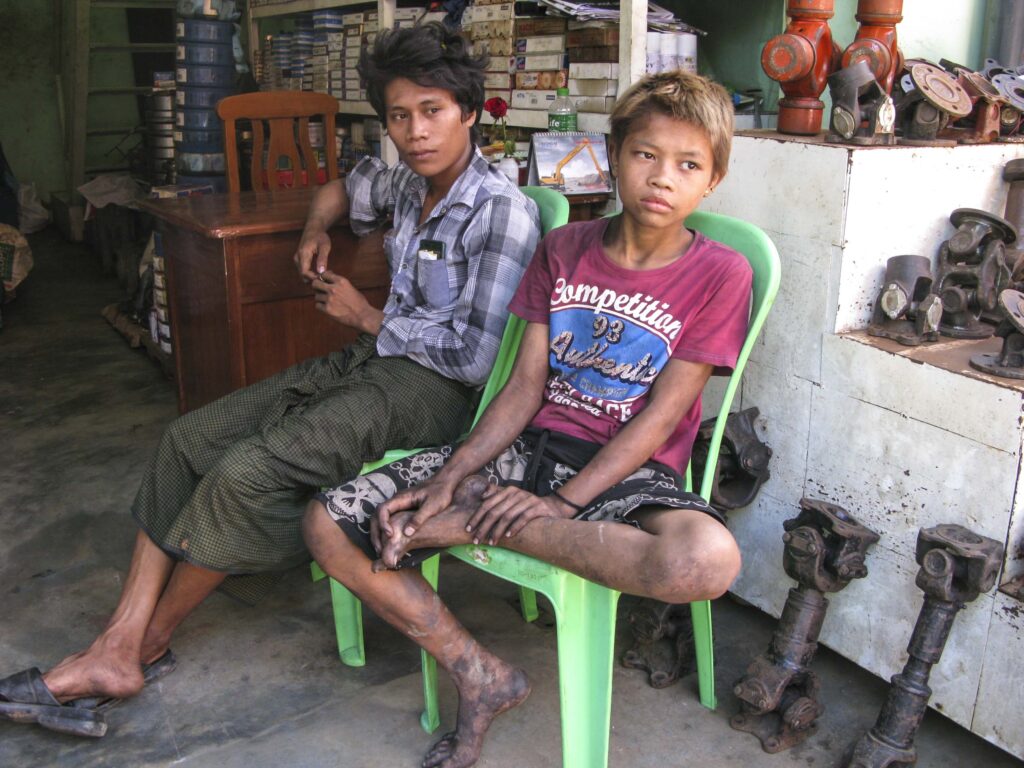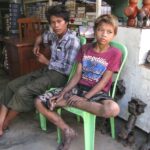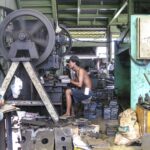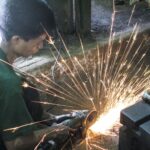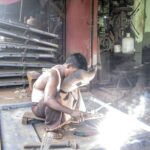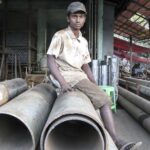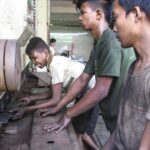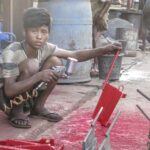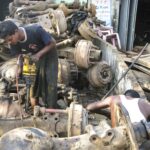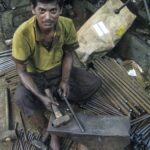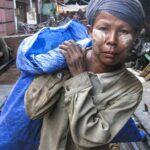11 May, 2016
Yangon’s South Dagon Industrial estate (Zone 3) is a labyrinth of metal workshops, stores and small factories. Nobody even knows the number of workers employed there. Some say 10,000 people, others 20,000.
The estate is an anvil of heat, dust and heavy metal, which is cut, machined, welded and hammered to order. From bolts, to plates, pylons, rigs and pipes, it is a testament to Burmese industry and ingenuity.
But it is also a paradigm of the herculean task facing the country’s nascent trade union movement: led by trade union centre the Confederation of Trade Unions of Myanmar (CTUM), formerly the Free Trade Unions of Burma (FTUB), who were only officially recognized in July last year after 24 years in exile in neighbouring Thailand. IndustriALL Global Union has two affiliates in Myanmar, both affiliated to CTUM; the Industrial Workers Federation of Myanmar (IWFM) and the Mining Workers Federation of Myanmar (MWFM).
To say that workers are ruthlessly exploited in Myanmar would be an understatement.
Add six decades of brutal military rule and repression in the south east Asian nation, formerly called Burma, and this, one can only surmise, is the result.
But, remarkably, the people – no doubt inspired by the advent of democracy following Aung San Suu Kyi’s electoral victory last November – appear happy.
Certainly, Ko Khin Zaw, a 45-year-old metalworker at South Dagon Industrial seems contented enough with his wages of 5,000 Kyat for nine-hours labour a day – the equivalent of just over US$4.
“I earn enough money to eat and sleep. Of course it would be good to get more money. But it’s enough. I’m happy,” said the 45-year-old.
“My two sons are also working. The eldest Htein Lin, who is 22, earns 130,000 Kyat as a cleaner at a car showroom in town and my other boy, Lumin Khant, who is 16, is a metalworker here like me and earns 5,000 Kyat a day. So altogether we make enough to get by.”
Yet Ko Khin Zaw, like most of the workers I spoke to over a recent four-day assignment for IndustriALL at the South Dagon Industrial estate had barely any concept of his worker rights or trade unionism.
What about health and safety? I asked him. The battered bamboo topi he wore stylishly on his head offered a measure of protection from the burning sun overhead, yet it would hardly stop a chunk of flying metal.
Was he supplied with safety helmet, gloves, work boots? The answer came back: “No. No.” And “No.”
What happens if a worker gets injured or falls ill, I continued.
“Oh, the boss takes care of that,” he replied with finality.
The streets where the metalworkers live are littered with rubbish. Trash is piled high at the top and bottom of each lane, waiting for eventual collection. The putrid smell of decomposing vegetation, human faeces, even dead animals, pollutes the air.
Mosquitoes breed unchecked in pools of still-dead water. The workers’ homes are shacks made of latticed bamboo, with reed matting as roofing or scavenged metal sheeting, even asbestos.
Small children play amongst the detritus. Women do their household chores, washing clothes, sweeping, cooking on wood or charcoal, waiting for their men to return home from work.
The thud of heavy machinery drones across the fence demarcating the industrial estate.
If there is electricity it has been illegally tapped from nearby electricity poles. A few stalls sell a sorry and limited selection of fruit and vegetables.
Entertainment, such as it is, means television in a large open plan “tea shop” that serves tea, coffee, soft drinks, fried rice and noodles.
Child labour is widespread on South Dagon Industrial. Every young worker of “questionable” age I spoke to told me they were 16-years-old, a co-incidence too good to be true.
One youngster I interviewed finally admitted he was in fact aged 12.
Kyaw Zaw Hein told me he went to school for five hours in the morning and then came to work in the machine shop for four hours every day, earning just over US$2 a shift.
“I want to know all about mechanics. I like it here better than school. My handwriting is very bad and the teacher is always going on at me. I’m happier here on the job,” said the little worker.
Earlier, I had seen the workshop owner, Sein Myint, surreptitiously try to shoo his child worker out of camera sight, until he admitted: “Families send them here to learn the job. By 18-years-old he will be a skilled worker. That is their ambition.”
Across the industrial estate, I saw scores of child workers beavering away, doing the work of adults.
Soe Min Hewe squatted on the sidewalk spraying machine parts with toxic paint. He wore no gloves, goggles or mask.
Moe That Mying, his face smeared with dirt and grease, walked bare footed among the jumble and chaos of flaming gas cutters, powerful pressing machines and crash of metal on metal.
“Health and safety is a big, big issue, as you’ve seen,” CTUM President Maung Maung, a 63-year-old trained geologist, told me.
“We’ve already helped establish 650 local affiliates. But we know we’ve still got a great deal of work to do.
“We’ve made some inroads in the larger industrial plants but these small scale workshops are much harder to organize. A lot of focus, perhaps too much focus, has been placed on the garments industry.
“There are only 70 labour inspectors in the Ministry of Labour and you can’t just concentrate on one industry. Conditions within workshops remind me of Thailand 20 years ago.
“Sixty years of dictatorship has resulted in a compliant and cowed labour force, who do what they’re told and don’t know their labour rights.”
Annie Adviento, regional secretary for IndustriALL in South East Asia, said:
Work in the industrial zone of Myanmar is difficult and dangerous, and living conditions are terrible. Years of repression mean that many workers accept the situation. Our affiliates are fighting to show workers that it doesn’t have to be like this, and IndustriALL will support them all the way. These workers deserve safety and dignity at work.
Feature by David Browne in Yangon
